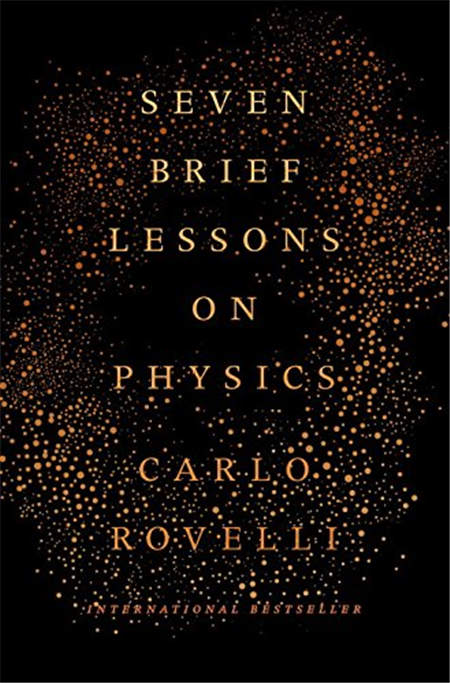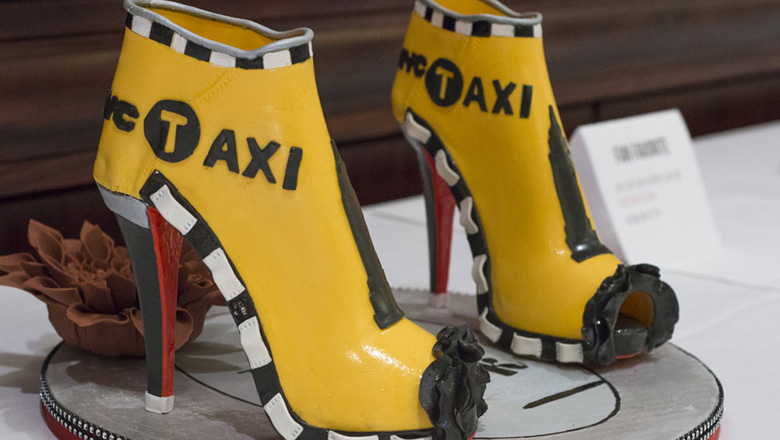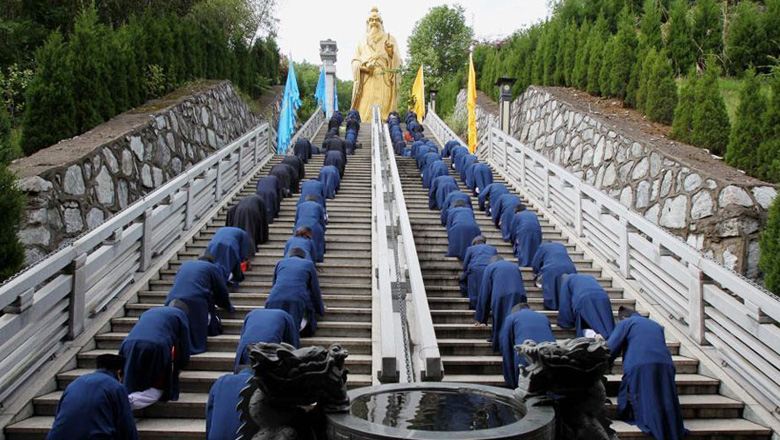Science writer unveils the art of seeing things differently
Updated: 2016-05-18 07:55
By Yang Yang(China Daily)
|
||||||||
 |
|
Rovelli's best-seller has been published in 34 languages and its Chinese edition is expected soon. Provided to China Daily |
These received much notice in Italy and have been expanded into the book.
The core idea is often simple after you eliminate extraneous details, he says.
For instance, the work of Copernicus in the 16th century is very technical and complicated, but his discovery can be stated simply: 'The Earth turns on itself and around the sun'," Rovelli says. So he tried to do the same for the discoveries of modern physics.
He starts the first chapter, the proposition of general relativity, from Albert Einstein's "loafing aimlessly", pointing out the value of wasting time for young talents.
"In his youth, Albert Einstein spent a year loafing aimlessly. You don't get anywhere by not 'wasting' time - something, unfortunately, which the parents of teenagers tend frequently to forget."
In explaining the complicated genius theory, Rovelli connects his personal experience as an undergraduate in Calabria, Italy.
Reading a rodent-gnawed textbook, he says, "every so often I would raise my eyes from the book and look at the glittering sea: It seemed to me that I was actually seeing the curvature of space and time imagined by Einstein".
Rovelli compares the uplifting epiphany moment to the appreciation of artistic works: Mozart's Requiem, Homer's Odyssey, the Sistine Chapel and King Lear.
Li Min, astrophysicist and secretary-in-general with Jiangsu Astronomy Association, shares that view. He says that like artists and writers, the most brilliant talent of a scientist lies not in his or her strong logic, but in intuition and imagination.
Science begins with a vision. Scientific thought is fed by the capacity to see things differently than they have previously been seen, Rovelli writes.
Besides beguiling important scientific discoveries, Rovelli also presents the perseverant attempts of the most brilliant minds in the 20th century to cross the ocean of the unknown to see a "simpler, deeper order" of the cosmos, to solve the problem that made Einstein's head hurt.
"This is what we call the spirit of science, which is the most important aspect that popular science readings should advocate," says Li Min.
yangyangs@chinadaily.com.cn
- Canadian PM to introduce transgender rights bill
- Hillary Clinton says her husband not to serve in her cabinet
- New York cake show designs fool your eyes
- ROK prosecutors seek 17-year prison term for attacker of US envoy
- World's biggest plane leaves Australia
- Conference calls for females to be put at forefront of development

 Apple's CEO Tim Cook's eight visits to China in four years
Apple's CEO Tim Cook's eight visits to China in four years
 Annual New York cake show designs fool your eyes
Annual New York cake show designs fool your eyes
 Divers find ancient Roman cargo from shipwreck in Israel
Divers find ancient Roman cargo from shipwreck in Israel
 Taoist priests worship their ancestors in Central China
Taoist priests worship their ancestors in Central China
 The world in photos: May 9-May 15
The world in photos: May 9-May 15
 Top 10 most generous companies in China
Top 10 most generous companies in China
 Wine market shrugs off slump
Wine market shrugs off slump
 Terracotta teddy bears debut in Wuxi
Terracotta teddy bears debut in Wuxi
Most Viewed
Editor's Picks

|

|

|

|

|

|
Today's Top News
Liang avoids jail in shooting death
China's finance minister addresses ratings downgrade
Duke alumni visit Chinese Embassy
Marriott unlikely to top Anbang offer for Starwood: Observers
Chinese biopharma debuts on Nasdaq
What ends Jeb Bush's White House hopes
Investigation for Nicolas's campaign
Will US-ASEAN meeting be good for region?
US Weekly

|

|









